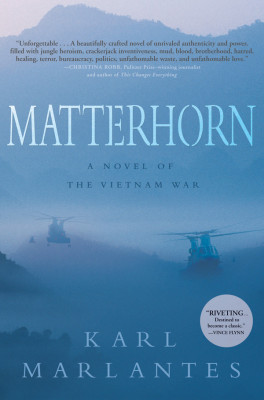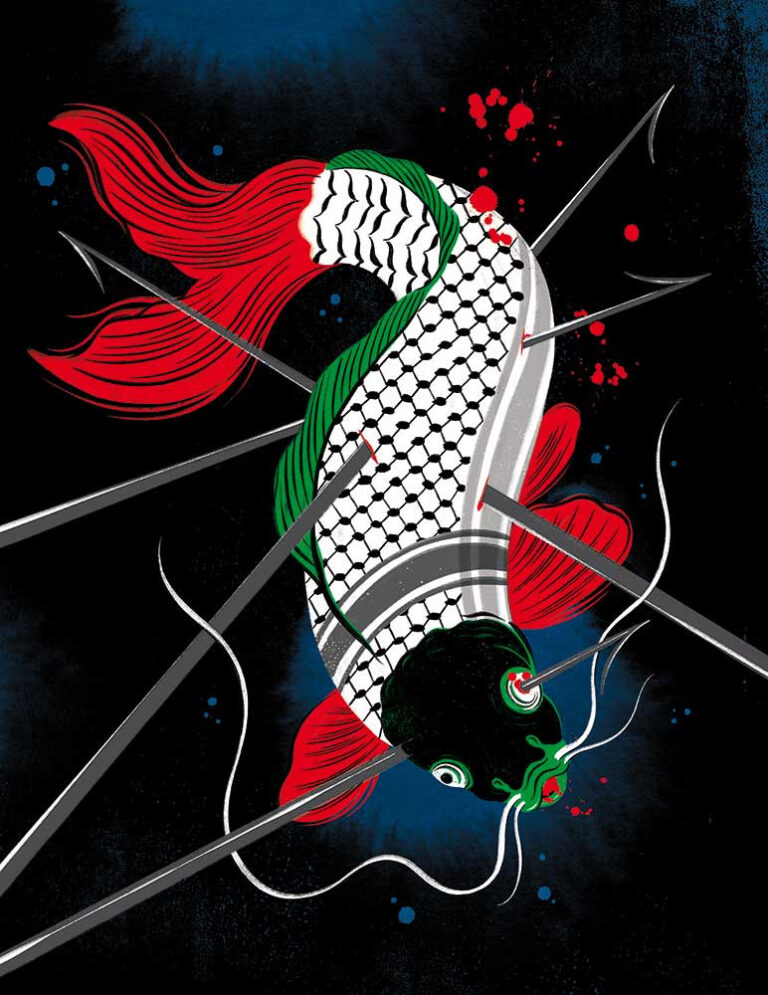Matterhorn, a novel of the Vietnam War by Karl Marlantes
I’ll admit it. I’m a Vietnam War junkie, ever since watching Apocalypse Now and reading Larry Heinemann’s Close Quarters before I hit adolescence. Both freaked me out and scarred me for life, but I’ve kept coming back to them because of the same reasons. I also love war stories in general, even though I’m a pacifist. Go figure. What this means is that I’ve read a lot of war memoirs and novels, seen a lot of TV documentaries, and watched a lot of war movies, dealing with everything from medieval knights to the new crusades the U.S. is waging. The war book I just finished reading is Karl Marlantes’ novel, Matterhorn, about a hill of the same name in Viet Nam that becomes the site of a terrible battle between US Marines and North Vietnamese Army regulars. Book reviewers like Sebastian Junger have hailed it as a masterpiece and the real Vietnam War novel we’ve supposedly been waiting for, so I immediately downloaded it to my iPhone and read it over the past couple of weeks (it’s something like 600 pages long). It’s a good book, although not as good as Norman Mailer’s The Naked and the Dead, which it’s been compared to, and not as good as Close Quarters, which I hated when I first read it at ten or eleven years old because it was such an ugly, horrifying story, and which I can appreciate now because it is an ugly, horrifying story. Matterhorn is worth writing about because it’s a major wave in the minor current in American writing about the war, and one that could help to shift the way the war is written about.
Basically, I think American literature about the war trends in one of two ways. The major writing is Tim O’Brien, Michael Herr, Heinemann, Yusef Komunyakaa, Susan Sontag, Mary McCarthy, people who thought the war was a major screwup and who wanted their writing to express that in both content and form. The minor writing has been the realistic, straightforward kind that Heinemann sneers at when he recounts in his memoir Black Virgin Mountain about meeting Jim Webb, Marine veteran and novelist, now a Senator, in Vietnam in the 1990s, and how both couldn’t stand each other. Webb writes about grunts and thinks that U.S. soldiers were good guys on a bad mission. Heinemann thinks the bad mission brought out the latent evil in American soldiers. In Marlantes’ Matterhorn, the tilt is more towards the Webb kind of story, and this story–good boys, bad war–is the one that may get more and more traction as we get further distance from the Vietnam War. The novel follows a lot of different Marines who are hard to keep straight, but the main character is Lieutenant Mellas, who starts off as a medal-hungry, politicking officer, and who, baptised through firefights and witnessing the deaths of many comrades, learns to love his fellow soldiers, love himself less, despise his incompetent superiors, and give up all dreams of glory. Along the way, he kills a lot of “gooks.” The word “gooks” is used the way John McCain says he uses it–to describe an enemy, but without any racist intent. And the novel does go out of its way to show that gook is not supposed to be a racist term, as harmless as Jerry or kraut for the Germans in World War II. How so? The gook is actually a good man and a hard fighter. The Marines respect the gooks. What the Marines can’t stand are the South Vietnamese soldiers who are their allies. This distinction between good gooks and bad allies runs throughout all kinds of Vietnam War literature, and here it gets elevated to a post-racist distinction between good and bad Vietnamese. If we can tell the difference between the Vietnamese–they don’t all look the same to our black and white American eyes–then we can’t be racist towards them, can we?
The real racism in the novel’s story is not anti-Asian. The real racism is between black and white Americans. I learned vocabulary I never heard of before–chucks versus splibs–and the novel delves deep into the racial tension between the Marines, which leads to all kinds of Marine-on-Marine conflict and violence, even fratricide and fragging. By the end, despite the enmity, there are also tenuous glimmers of hope for racial brotherhood, or at least sensitivity, between some of the Marines. The problematic Americans are the redneck white racists and the diehard black radicals (who are also trafficking in drugs), but the well-meaning liberals like Mellas see a way through the extremists. But if we can get through the stupidity of extreme views, the novel implies, we can emerge the better for it, with our real problems being the ones we have with each other as Americans, not with the (North) Vietnamese, who remain, as always in this kind of literature, faceless and nameless (if treated with a smidgen of sympathy for their heroism).
Matterhorn should be read along with Dennis Johnson’s Tree of Smoke, which won the National Book Award a couple of years ago and is also a big book, a door stopper with the spirit of the antiwar strain in the literature. In Tree of Smoke, Vietnamese have more of a presence and a voice, and the approach is more high literary. The two novels represent the fork in the road for talking about the Vietnam War from American viewpoints–one (Matterhorn) that says Americans weren’t so bad to anybody as they were to each other, and one (Tree of Smoke) that says actually, Americans really were as bad as the rest of the world thought them to be. The discouraging thing is that many, perhaps most, Americans really believe in the former. The encouraging thing is that enough Americans believe in the latter for there to be an ongoing debate.
_____
“Grunts vs. Gooks: Vietnam War Literature and Marlantes’ Matterhorn” was originally published on DiaCritics.org on June 6, 2010.



